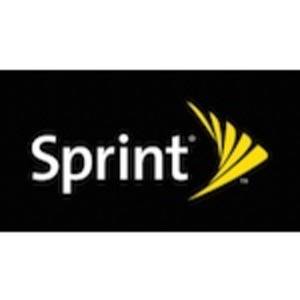U.S. operator Sprint is planning to launch its own NFC-enabled mobile payments service ahead of Isis, the joint venture from the three other major U.S. operators, AT&T, T-Mobile and Verizon Wireless. While Isis plans to launch commercial services in 2012, in conjunction with Discover and Baclays U.S., part of U.K. bank Barclays PLC, Sprint says it will launch this year.

The operator is also touting its more open business model as a key differentiator between the two carrier-led mobile wallet solutions. “We intend to make this an open solution where consumers can use their phone in a variety of physical locations,” Kevin McGinnis, VP of Product Platforms at Sprint told Bloomberg this week. “Because we’re allowing other brands and other institutions to participate, they can also tell their consumers that this is available on Sprint.”
This post is part of an ongoing series on NFC here on ReadWriteMobile which will serve to get you up to speed on what NFC is, what notable developments are underway and what commercial programs using NFC will arrive this year. You can follow this series by clicking the tag (or bookmarking the tag) “NFC 2011.”
This post assumes you are familiar with the term NFC as well as the technology’s use in mobile payments. If you’re just starting to learn about NFC, you should begin here with the first post in the series to get caught up.
Sprint Beats Isis to NFC-Enabled Mobile Payments Launch
In addition, Sprint plans to generate revenue in a different manner than Isis, which intends on taking a percentage of each transaction. Instead, Sprint says it could share in the revenue from sales off coupons sent to its customers’ handset or targeted advertising, Bloomberg reported.
Transactions made using Sprint’s mobile wallet solution would still be billed on customers’ regular credit card statements.
Isis Launches First Pilot Program
As Sprint’s news makes headlines, Isis, too is moving forward with its plans. The operator coalition announced the launch of its first pilot program this week. The new mobile commerce program will debut in Salt Lake City, Utah in “early-to-mid-2012.” The group has entered an agreement with the Utah Transit Authority (UTA) to make the entire transit system Isis-enabled – that is, NFC-enabled, so passengers can pay for their tickets by tapping their phones to electronic fare readers on bus and train platforms.

Salt Lake City may seem an odd choice for a cutting edge emerging technology like this, but in reality, the city has been very forward-thinking in this area. In early 2009, UTA implemented a contactless payments system which works with credit and debit cards. That existing system will be modified to allow Isis customers to use their phones instead.
Isis says it’s also still working on investing in the necessary infrastructure to enable mobile commerce nationwide by working with merchants, banks, payment networks and mobile carriers.
Transit System + Operator Support = NFC Adoption?
Elsewhere in the world where NFC has been successful, it often begins through a partnership between a mobile carrier and transit system. By incorporating NFC into a task people perform daily as a part of a routine – paying for their transportation fares – NFC is able to cross the adoption hurdle that faces all new technology-related behaviors.
In fact, in a recent research paper by SJB Research analyst Sarah Clark, she reported that a partnership with a single transit merchant can have the same mpact on adoption as bringing hundreds of merchants on board.
While it’s critical that initiatives like these push the NFC movement forward in the U.S., once people are comfortable using NFC, they may then choose to change their default mobile wallet program from one provided by their mobile carrier to one provided by their handset manufacturer, like Apple or RIM, or by their mobile operating system’s maker, as with Google Android.
Not surprisingly then, these operator-led moves come on the heels of reports regarding both Google and Amazon’s plans to integrate NFC into mobile payment systems of their own.









